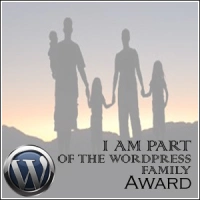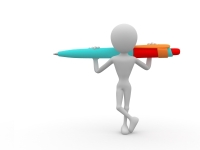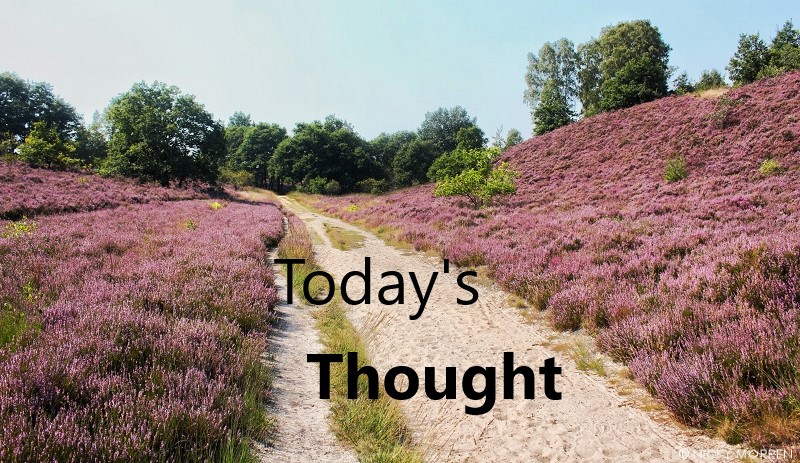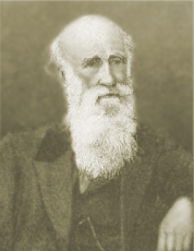Three days after the United Nations’ International Day for the elimination of Violence against Women we may look at an other women event which need the attention of the whole world. Women in Parliaments Global Forum commemorated the 25th of November to promote a better society where women’s rights will be respected and men and women will have equal rights. #Advancingsociety can only be possible with the eradication of violence against women!
According to the available data today just 49% of Yemeni women and 40% of Pakistani women were literate in 2012, compared to 82% and 69% of men, respectively.
Last year, the Pakistani Taliban shot teenager Malala Yousafzai for actively promoting girls’ right to an education. She survived and was nominated for this year’s Nobel Peace Prize for her activism.
Belgium is standing on the 11th place for gender differences.
We can not ignore that women in countries with extreme gender inequality frequently lack representation in political office. Women accounted for at least 20% of parliament in only three of the 10 worst nations. In Yemen (136th place), there are no female members of parliament. Only one of these nations, Pakistan (135th place), has had a female head of state in the last 50 years. Pakistan’s former prime minister, Benazir Bhutto — the sole woman to lead any of these countries — was assassinated in 2007.
Today we got 120 years ago a milestone, having the women of New Zealand who became the first in the world to vote in a national election.
To mark this milestone of the 28th of November 18, the Women in Parliaments Global Forum (WIP) host their annual summit in the European Parliament.

The WIP as an independent, international and non-partisan foundation established with the purpose of advancing society by building a network between Women in Parliaments, is determined to encourage and educate society to lean more on the untapped potential and talent of women.
Today’s world is a volatile, complex and interdependent one. As the only global forum reaching out to all female Parliamentarians on national level, WIP endeavours to find ways to address global challenges by using the collective strength and ability of women in Parliaments across the world.
Award Ceremony ‘ Annual Summit women in Parliaments – WIP – Global Forum ‘
Eyglo Haroadottir, Zita Gurmai, Ntlhoi Motsamai, Kathy Calvin, Silvana Koch-Mehrin, Oyungerel Tsedevdamba, Daphne Barak-Erez, Loren Legarda Photo: audiovisual.europarl.europa.eu
WIP would like to see an increasing number of women representatives in Parliaments around the globe. Based on the rankings of the World Economic Forum’s Global Gender Gap Report, the WIP Awards honour countries for leadership in closing the gender gap. They’re are convinced that women can be the change they wish to see in the world and could reverse reality – what if: ‘Lehman Sisters’ or the sisterhood ran g20 and big business.
Today in 2013, according to the Inter-Pariamentary Union, we can see over more than 9000 female Parliamentarians across the world. WIP is for them the only global forum reaching out to all female Parliamentarians on a national level. Parliamentarians have privileged insight into, and influence on legislative issues as a result of continuous contact and exchange with their electorate and stakeholders.
WIP’s mission is to advance society by using the collective strength and ability of those more than 9000 female Parliamentarians across the world.
Talking about reshaping society through female leadership will bring in enough points to discuss in this still man governed world. Even in the so called industrialised countries we are having a gender gap.
There are working groups organized in cooperation with international partners, such as:
• UN development Programme and UN Women
• Inter-Parliamentary Union
• EY and Transparency International
• World economic forum
• iKNOW Politics and the National democratic Institute
The Chairperson of the African Union Commission, H.E. Dr. Nkosazana Dlamini-Zuma arrived in Brussels, Belgium, on Tuesday 26 November 2013, to attend this Annual Summit of Women in Parliament Global Forum (WIP). Hosted by the European Parliament, the summit is holding on the theme, “The Spirit of Women in Parliaments: Advancing Society,” from 27-29 November 2013.
Critical issues to feature in the summit include: reshaping society through female leadership; female empowerment for peace, security and integrity; impact of elected women in parliaments; fight against corruption; delivering on gender equality; gender studies in academics; and the use of technology and women’s political participation.
Dr. Dlamini Zuma, who is also a WIP Advisory Board Member, delivered one of the keynote addresses, and participates as a panelist in one of the interactive sessions discussing: “Reshaping Society through Female Leadership”.
Leo Sun, the President of Huawei’s Public Affairs Office in Brussels, wanted to share Huawei’s experience in this field as a company placing strong emphasis on providing equal opportunities to women.
During the summit, countries will receive awards for their leadership in bridging the gender gap. Three countries from Africa will be amongst the recipients: Rwanda will receive the award in the category of political empowerment, with a record number of women in parliament; Lesotho features in the category for closing the gender gap, while Algeria will receive the award for its achievements in increasing the percentage of women in parliamentary positions.
Yesterday the question was asked if an increase in female leadership would help advance society.
‘When one woman is a leader, it changes her. When more women are leaders, it changes politics and policies.’ (Michelle Bachelet) Traditional social norms, gender stereotypes and biased perceptions of women’s effectiveness in leader-ship roles are still widespread. What needs to be done to overcome these and what effects would this have on society.”

European Parliament President, Martin Schulz, presenting the Sakharov award to the 16-year-old activist Malala Yousafzai
The 16 year old Pakistani teenager activist Malala Yousafzai, who was previously honoured as the country’s most influential Asian, at this year’s GG2 Leadership and Diversity Awards and got the prestigious Sakharov Prize for Freedom of Thought, came to tell her story. Miss Yousafzai, who was nominated for the Nobel Peace Prize earlier this year, was recognised for her work in raising awareness for female empowerment.
The GG2 Hammer Award, which is given to individuals who have broken through the glass ceiling, was handed to Miss Yousafzai and her two friends Kainat Riaz and Shazia Ramzan. The three girls were handed the award for their bravery in standing up against Taliban rule in their village in Pakistan.
Malala Yousafzai did not stop the previous days to wow the largely adult audience with her political ambitions, her wise counsel for the world to send pens and not weapons to help her country and her astonishing poise.
For this girl it important that girls and women get their rights to study and to progress, also having changes to tell others what they think. According to her powerful nations are not those who have weapons, guns and bombs. In her opinion the powerful nations are those who have educated society, human morals, education for everyone and equal rights for both genders female and male.
Ahmed Al Jarwan, President of the Arab Parliament and Rebecca Alitwala Kadaga, Speaker of the National Assembly of Uganda and Member of the Executive Committee of the Inter-Parliamentary Union could open the inter Active plenary session “Be the Change You Wish to See in the World”
‘Gender equality is more than a goal in itself. It is a precondition for meeting the challenge of reducing poverty, promoting sustainable development and building good governance.’ (Kofi Annan) More than 50% of the world’s population is female, but not even 20% of political representatives are women. What needs to change to overcome being the minority? What are the messages that female Parliamentarians can pass on? In which ways are female Members of Parliament the agents of this change?
Today, Thursday 28th of November the WIP is looking at the last ten years where all the financial crises have been handled and managed by men.
“So it’s high time to change’(Mario Draghi). Is there a specific gender bias in decisions taken at the financial markets? What if these markets were steered by women and what impact would that have on the economy?”
Jody Williams, Nobel Peace Prize laureate introduced the Panel IV “The mother of female empowerment: peace, security and integrity of the person” at the WIP Summit today. (Look at the EU Video live broadcasting: http://www.europarl.europa.eu/ep-live/en/other-events/video?event=20131128-0900-SPECIAL
‘The terrorists thought they would change my aims and stop my ambitions, but nothing changed in my life except this: weakness, fear and hopelessness died. Strength, power and courage was born.’ (MalalaYousafzai)No other fundamental and human right can exist without access to security and the integrity of the person. Women living in permanent fear of their life integrity can not live up to their potential. What has to be done to advance society in these fundamental areas? What further impact would a positive change in these areas have?”
In the sidelines of the summit, the AUC Chairperson will also be a special guest at a dinner with European Union President, José Manual Barroso.
Tonight in co-operation with Europalia India, a cultural programme will be provided by countries from all over the world in Bozar, Centre for Fine Art.
Tomorrow morning they will tackle the creatures in the image of God.
“All Men are Created Equal. So are Women. Bridging Societal Gaps” Globalization offers increased opportunities. However, gender-based inequalities continue to exist in our societies – unequal access to health, education, wealth distribution, the rule of law as well as a broadening digital divide. What is the origin of these gaps? Should they be addressed by regulation? What is the highway to equality?***
You can get to know better the specifics of each award winner including:
- Algeria and its new highly efficient quotas;
- Bolivia not afraid of indigenous female ministers;
- Canada with more obstacles to gender equality than one would expect;
- Iceland strong as always;
- Israel where modern laws are not enough to do the job;
- Jamaica with a female prime minister and … little more;
- Lesotho with a small territory, but a large space for women;
- Mongolia doing much better after the most recent parliamentary election;
- New Zealand once the place to be for women, now slowing down a bit;
- Norway where even key portfolios are held by female ministers;
- Rwanda once fearful, now impressive, and
- United Arab Emirates whose successes have been overshadowed by extramarital sex charges against a rape victim.
+
Please do find also:
- Profile: Malala Yousafzai
- Malala Yousafzai: Portrait of the girl blogger
- Malala Yousafzai awarded Sakharov prize for freedom of thought – video
- I Am Malala by Malala Yousafzai – review
30 Oct 2013: Fatima Bhutto on Malala Yousafzai’s fearless and still-controversial memoir - Malala Yousafzai gets EU’s Sakharov human rights prize
The Sakharov Prize for free speech is awarded by the European Parliament annually in memory of Soviet physicist and dissident Andrei Sakharov.
The 50,000 euro ($65,000) prize is considered Europe’s top human rights award.”I am hopeful the European Parliament will look beyond Europe to the suffering countries where people are still deprived of their basic rights, their freedom of thought is suppressed, freedom of speech is enchained,” Ms Yousafzai said.”Many children have no food to eat, no water to drink and children are starving for education. It is alarming that 57 million children are deprived of education… this must shake our conscience.” - Ouleymatou Ascofaretamboura says: La lutte pour la promotion des droits des femmes vise un meilleur devenir pour l’humanité . Joignons donc nos forces pour un monde meilleur ! Merci a Marie Rose Ada Owona que je reconnaissai sous Guienefan n’eut été la photo!
- Gendercide + Women in politics
Gender imbalance reaches far beyond Asia, affecting Georgia, Eastern Europe, and cities in the U.S. where there are significant immigrant populations. The world, therefore, is becoming increasingly male, and this mismatch is likely to create profound social upheaval.”
This book is available in the EP Library. - Women in tech
In the midst of what has been termed the ‘Digital Age’, global concerns for the role of women in technology is gaining ground. While in the 1980s, the number of female computer science professionals was around 40%, today the situation has changed significantly and the computer world has approximately 27% of females engaged as employees.
+
Despite the number of IT jobs increasing, less women are being hired and gender equality in the sector has been identified as a main issue.Last year, only 9% of chief information officers (CIOs) were women, down from 11% in 2011 and 12% in 2010, according to a survey published by tech-staffing firm the Harvey Nash Group.One of the reasons why the percentage of women in tech positions is decreasing is that year on year a lower number of female students choose science and technology as university degrees. Adding to this, 65% of females in technical roles feel that their suggestions and skills are not taken into account, according to a Catalyst report. - Equal?
Created in the image of the Originator each human being has the same value and the same rights for God. Only Jesus, who was lower than the angels has been placed higher to become a mediator between man and God. All other creations are under Jesus Christ and should become part of the Body of Christ, fully respecting each other and giving each other equal chances. - Poverty and conservative role patterns
In the industrialised countries sometimes we can not help to get the impression that women are still more than once looked at as a lust-object.Until the second half of the 20th century, women in most societies were denied some of the legal and political rights according to men. It has taken a very long time before women got the right to vote and to have their say in the house, community, village, city, country. In many industrialised countries the women got interesting positions but are not yet equally paid and do have to prove themselves twice as hard than the men. They may be allowed to share their thoughts and may have gained significant legal rights, we still can not neglect that women still do not have equality with men. This is evident at home, at their workplace, and in society in general. - Father and motherhood
Respect, honour, and support for those who want to take care for the next generation is long gone. Although the modern world sends mixed messages about motherhood, the Bible affirms that children are a blessing from God and can be a source of happiness for parents. - Women, conservative evangelicals and their counter-offensive
In 1988, the two-thirds of white Americans for example, believed that “sexual relations between two adults of the same sex” was “always wrong,” including 85 percent of born-again Christians. By 2010, both groups began to accept same-sex relationships. Born-again Christians still opposed homosexuality, but they answered the questions the same way non-believers answered in the 1980s. In 2010, two-thirds of evangelicals believed that homosexuality is “always wrong,” compared to just 30 percent of others. - Dignified role for the womanThe dignity of the office of housewife is today by many forgotten. Many men are not conscious what a work it demands to keep the household running properly. there are men who wanted their wives to work outside the house, but who are not willing to take on themselves the jobs in the house. Instead many married men do expect to have the woman working to bring in extra money plus doing all the household tasks.
If we want to see gender equality we do have to find the household jobs being done by men and women, both sharing in equal tasks.
+++
Related articles
- Women need a voice and a seat at the table (theguardian.com)
This week, the Commonwealth Parliamentary Association UK (CPA) will bring together parliamentarians from around the world to discuss the post-2015 development agenda, with a conference on gender equality and women’s empowerment.Part of CPA’s work is aimed at empowering women leaders. This is about tackling a basic injustice, but it’s also critical to making the best, most informed decisions about poverty.
+
While most international leaders are happy to make a broad commitment to gender equality and women’s empowerment, they have been too vague on the detail of what should be done and how. It is imperative that countries commit to specific, measureable outcomes, because, in the words of Hillary Clinton: “What gets measured gets done.” - The Most Unfair Countries For Women: 24/7 Wall St. (huffingtonpost.com)
By many measures, the United States is the wealthiest economy in the world. However, according to a recent survey, women do not benefit nearly as much as men. The U.S. ranked 23rd in the world for gender equality, behind countries including South Africa, Cuba, and the Philippines.The World Economic Forum (WEF) report, the 2013 Global Gender Gap Report, measured the disparities between men and women in 136 countries. In the nations that scored the worst, economic and educational opportunities, as well as political representation and health outcomes, were far worse for women than for men. According to the report, Iceland was the best country for gender equality, while Yemen was the worst. 24/7 Wall St. reviewed the 10 nations with the worst gender-based inequality.
+
The world’s worst countries for gender inequality consistently failed to provide the same education opportunities for women that were available for men. Five of these nations were among the bottom 10 countries measured for equality of educational attainment.
+(Click here to see the Most Unfair Countries For Women) - Male-female inequalities in PH decrease – world report (rappler.com)
The Philippines was better able to address inequalities between men and women in 2013 than the year before.This is according to the 2013 Global Gender Gap Report, which ranks the Philippines 5th out of 136 countries in terms of progress in closing the male-female gender gap in economics, politics, education, and health.In 2012, the Philippines ranked 8th.”Philippines is the only country in Asia and the Pacific that has fully closed the gender gap in both education and health,” the report reads. - Report: Most unfair countries for women (usatoday.com)
24/7 Wall St. reviewed the 10 nations that received the worst score in the World Economic Forum’s 2013 Global Gender Gap Report. Each country was graded based on its score in four key areas: economic participation and opportunity; educational attainment; health and survival; and political empowerment. Countries scored worse by each measure when the gap between men and women for that measure was the widest.For example, women in Yemen do not have the lowest literacy rate in the world, but the gap between men and women by that measure is the widest, so Yemen received the lowest score for literacy. At the time the WEF produced their study all figures represented the most recently available data. - also today started a conference on the role of women, but this time concentrating on the Muslim women in our society IIUI to hold international conference on ‘Women role in Muslim societies’ (thenewstribe.com)
- Update: Malala Yousafzai “The Girl’s Hero:” Glamour Magazine’s Woman of the Year (leadershipspirit.wordpress.com)
Malala Yousafzai has achieved a new status in her role as global figurehead, activist celebrity and teen leader as Glamour Magazine’s Woman of the Year. It’s a tribute to the editors, who see the value of her work and the need to support her. And it’s also a somewhat puzzling irony — the young activist fighting to make the plight of girls visible is being honored by a magazine that makes real women invisible, airbrushing an impossible beauty standard onto models and celebrities. How do we resolve this paradox of representation, given Yousafzai’s assigned leadership role as “girl hero?”
+
The paradox raises important questions that are hard to answer: Can we even compare the two oppressive standards that stereotype women’s bodies and roles? How does limiting women’s roles and holding different expectations for men and women change women’s leadership behaviors? And finally, do you think it’s possible or necessary for Yousafzai to avoid this kind of publicity as she builds her leadership role in the west? - Why Gender Equality Is Not Just About Equal Rights (theage.com.au)
Women of the world: pack your warmest sweaters, and head immediately to Iceland.According to a newly released report from the World Economic Forum [pdf], Iceland is the No. 1 country in the world for gender equality, for the fifth year in a row. And that equality is helping propel Iceland and its fellow Nordic nations to new economic heights. Turns out, the smaller the gender gap, the more economically competitive the nation. Even when that nation is totally freezing.(The report puts Australia at 24th place on the gender gap index, just below the United States but below Burundi, Cuba and New Zealand. Australia has moved up in the ranking one position from last year, but that’s not so good when compared with the No. 15 ranking achieved in 2006.)





























 Biblestudents – Bijbelstudenten
Biblestudents – Bijbelstudenten 0 + Bloggers for Peace
0 + Bloggers for Peace Free Christadelphian Ecclesia
Free Christadelphian Ecclesia Hoop tot Leven – Redding in Christus
Hoop tot Leven – Redding in Christus Vrije Broeders in Christus (Free Flemish Christadelphians on Wordpress)
Vrije Broeders in Christus (Free Flemish Christadelphians on Wordpress)















Pingback: Women their education and chances to become a parliamentary | Stepping Toes
Reblogged this on Lead Me On and commented:
This is a well-researched, smart article about the importance of women in government leadership roles, and the overlapping issues women leaders and female citizens face. I absolutely agree that increasing gender equity increases the possibility for democracy, and that in the negotiations of democratic processes (in public and private spaces), women’s roles must change. Kofi Annan’s quote says all: Gender equality is a precondition for meeting the challenge of reducing poverty, promoting sustainable development and building good governance..” Thanks for this excellent resource about international issues and women’s leadership for change!
LikeLike
Pingback: Happiness mapping and getting over gender mapping | Marcus' s Space
Pingback: Yemen: A country in crisis, what the world governments should practice and advocate to bring an end to the conflict – Some View on the World
Pingback: Americans need to end their indifference concerning the war in Yemen – Some View on the World
Pingback: A truce giving Yemenis hopes for peace – Some View on the World
Pingback: Rai al-Youm: Yemen: the truce is over – Some View on the World
Pingback: Why women, on the whole, are left to do more housework | From guestwriters
Pingback: 2023 Celebrate Women’s History, International Women’s Month and International Women’s Day | From guestwriters